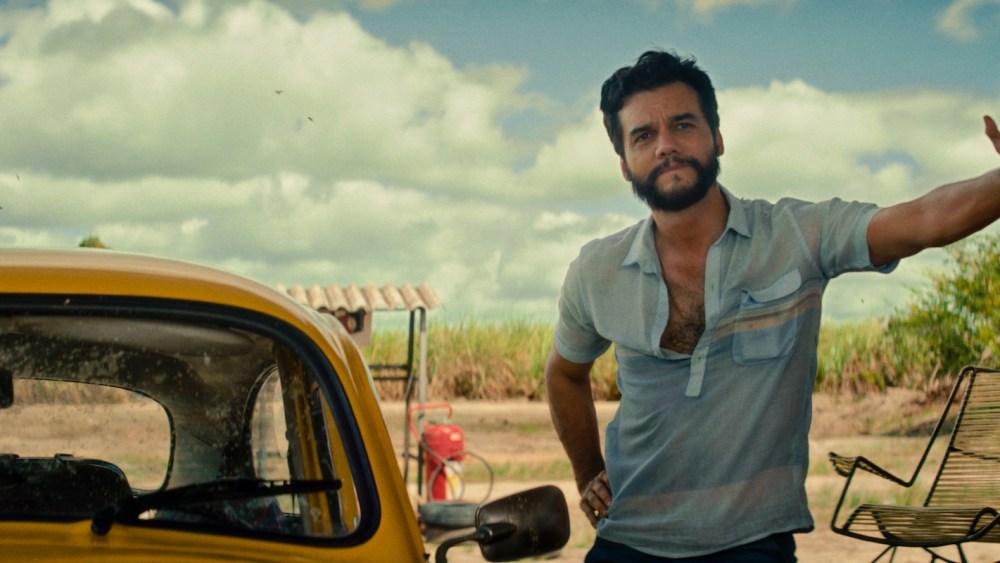‘The Secret Agent’: A Cinematic Journey into 1977 Recife
Kleber Mendonça Filho’s film, The Secret Agent, delves into the political and social climate of Recife during 1977, a time marked by corruption, violence, and a pervasive military dictatorship. The narrative, which intertwines around 100 deaths and disappearances, employs the backdrop of Carnaval as a façade to expose the grim reality of life in Brazil’s past.
Setting and Personal Connection
Set against an oppressive atmosphere, Mendonça draws from personal experience; at eight years old during this tumultuous period, his protagonist Marcelo, portrayed by Wagner Moura of Narcos, experiences a parallel reality with his son Fernando’s quest to see Tubarão (the Portuguese title for Jaws).
The Weight of Military Rule
The film vividly illustrates how everyday citizens navigated the intense scrutiny and danger posed by the military dictatorship, which lasted for another eight years. Unlike other recent portrayals of political abductions in Brazilian cinema, The Secret Agent places emphasis on Marcelo’s flight from northern Brazil to potentially reunite with his son, underscoring personal stakes amidst national turmoil.
A Gripping Atmosphere
As Marcelo journeys towards Recife, the film starkly depicts the reality of existence under oppressive regimes. A chilling scene features a corpse, nonchalantly covered in cardboard at a gas station, revealing the apathy of authorities towards human life.
Crafting Suspense and Tone
Despite being labeled as a suspense film, Mendonça opts for a nuanced approach that does not solely rely on traditional suspense tropes. Elements reminiscent of iconic filmmakers such as John Carpenter and Brian De Palma manifest stylistically, while the narrative remains anchored in the director’s journalistic origins—a blend of original storytelling intertwined with homage.
Resistance and Solidarity
Mendonce presents a subtext of resistance through Marcelo’s refuge with a diverse group of marginalized individuals, including queers and outspoken women, forming a communal bond in defiance of their reality. The character Elza, played by Maria Fernanda Cândido, emerges as a pivotal figure, connecting Marcelo to job opportunities and uncovering family secrets.
Societal Critiques
Through Marcelo’s experiences at his new job in an identification office, Mendonça critiques the discrepancies in societal protections—where wealth insulates the privileged while the underprivileged remain vulnerable to violence under the dictatorship. Such critiques add layers to the narrative and reveal the systemic injustices prevalent at the time.
Memories and Storytelling
In a noteworthy scene featuring Udo Kier as a German tailor, the character’s history encapsulates the weight of survivor narratives. This reflective moment echoes throughout the film, highlighting how the horrors of the past linger in collective memory, contrasting with the transient nature of life under authoritarian rule.
Public Fascination and Viral Sensation
Mendonça cleverly integrates a subplot surrounding a sensational discovery—a human leg found in a shark’s stomach—which takes the local press by storm. The film captures the media frenzy that ensues, drawing parallels with modern-day dynamics of sensationalism and the role of storytelling in shaping public perception.
Cultural Homage and Visual Aesthetics
Recife’s cinema scene also holds significance within the narrative, particularly through Marcelo’s father-in-law, who operates a local cinema screening The Omen. Mendonça’s meticulous attention to period detail—from vintage cars to music—creates a rich tapestry that immerses viewers in the era.
Highlighting Marginalized Voices
The portrayal of underrepresented communities takes center stage in this film. By focusing on queer individuals and women of color, Mendonça validates the untold stories of those often overlooked, forging a connection between past and present struggles for recognition and respect.
Conclusion
The Secret Agent serves not only as a suspenseful cinematic venture but also as a thoughtful exploration of Brazil’s historical landscape, revealing how shared stories and collective memory shape societal realities. Mendonça’s craftsmanship ensures that the echoes of the past resonate with contemporary audiences, offering a poignant reflection on resilience and humanity.

